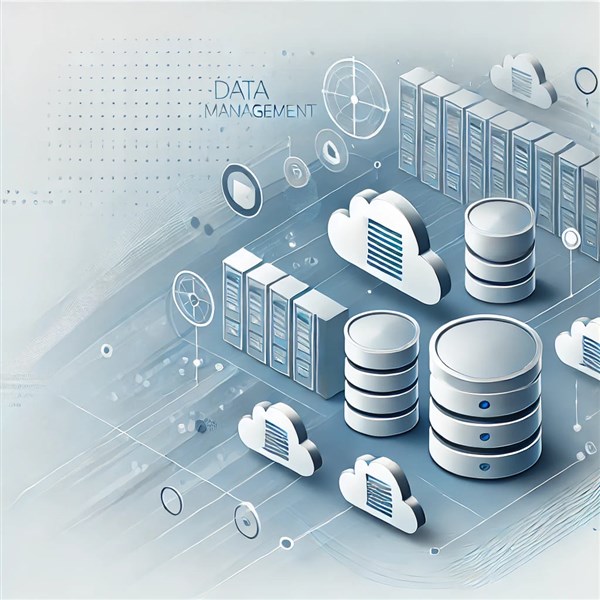
In today’s data-driven world, the ability to manage data effectively is crucial for businesses of all sizes. As organizations generate and collect vast amounts of data, the need for skilled data management professionals has never been greater. A data management course provides individuals with the knowledge and skills necessary to navigate this complex landscape. This blog will explore the key skills you will learn in a data management course, highlighting their importance in today's business environment.
Skills You Will Learn in a Data Management Course
1. Understanding Data Governance
One of the first and foremost skills you will gain from a data management course is an understanding of data governance. Data governance refers to the overall management of data availability, usability, integrity, and security in an organization. Effective data governance ensures that data is consistent and trustworthy, which is essential for making informed business decisions.
In a data management course, you will learn about the principles of data governance, including:
- Data Stewardship: Understanding the role of data stewards who are responsible for maintaining data quality and integrity.
- Policies and Procedures: Developing and implementing policies related to data access, usage, and security.
- Compliance: Navigating data protection regulations, such as GDPR and HIPAA, to ensure that your organization complies with legal requirements.
2. Data Quality Management
Data quality management is a critical aspect of data management that focuses on maintaining the accuracy, completeness, and reliability of data. Poor data quality can lead to flawed analyses and misguided business decisions. In a data management course, you will learn how to assess and improve data quality through various techniques and tools.
Key concepts covered include:
- Data Profiling: Analyzing data sources to identify data quality issues and determine the health of your data.
- Data Cleansing: Techniques for identifying and correcting errors in data sets, such as removing duplicates or filling in missing values.
- Data Validation: Establishing processes to verify the accuracy and consistency of data before it is used for decision-making.
3. Mastering Data Modeling
Data modeling is the process of creating a visual representation of data structures and relationships within a database. This skill is essential for designing efficient databases that facilitate easy data retrieval and analysis.
In a data management course, you will learn:
- Entity-Relationship Diagrams (ERDs): Creating ERDs to illustrate the relationships between different data entities.
- Normalization and Denormalization: Understanding the concepts of normalization to eliminate data redundancy and denormalization to improve query performance.
- Schema Design: Designing logical and physical database schemas that meet organizational requirements.
4. Database Management Systems (DBMS)
A solid understanding of Database Management Systems (DBMS) is essential for anyone looking to work in data management. In a data management course, you will be introduced to various types of DBMS, including relational, NoSQL, and cloud-based databases.
You will learn about:
- SQL: Mastering Structured Query Language (SQL) for querying and manipulating relational databases.
- Database Administration: Understanding the responsibilities of a database administrator, including backup and recovery, performance tuning, and security management.
- Emerging Technologies: Exploring modern DBMS technologies, such as cloud databases and distributed databases, that are shaping the future of data management.
5. Data Integration Techniques
In many organizations, data resides in multiple systems and formats, making it challenging to consolidate and analyze. Data integration techniques help organizations unify their data sources to gain a comprehensive view of their operations.
Key skills you will learn include:
- ETL Processes: Understanding Extract, Transform, Load (ETL) processes to integrate data from various sources into a centralized repository.
- Data Warehousing: Learning how to design and implement data warehouses that store integrated data for reporting and analysis.
- Real-Time Data Integration: Exploring methods for real-time data integration to enable organizations to make decisions based on the latest data.
6. Data Analytics and Visualization
In a data management course, you will also develop skills in data analytics and visualization. These skills are essential for interpreting data and communicating insights effectively to stakeholders.
You will learn:
- Data Analysis Techniques: Familiarity with statistical methods and analytical tools to derive insights from data.
- Data Visualization Tools: Using tools like Tableau, Power BI, or Excel to create interactive and informative visualizations that make data easily understandable.
- Dashboard Design: Best practices for designing dashboards that present key performance indicators (KPIs) and other vital metrics.
7. Data Security and Privacy
With the increasing focus on data security and privacy, understanding how to protect sensitive data is more important than ever. A data management course will cover essential skills related to data security and privacy regulations.
Key areas of focus include:
- Data Encryption: Learning about encryption techniques to protect data at rest and in transit.
- Access Control: Implementing access control measures to restrict data access to authorized personnel only.
- Compliance: Understanding data privacy laws and regulations, such as GDPR, and how to ensure compliance within your organization.
8. Business Intelligence (BI) Concepts
Business Intelligence (BI) refers to the technologies and strategies used by organizations to analyze data and make informed decisions. A data management course will introduce you to the core concepts of BI and how they can drive business success.
Skills you will learn include:
- BI Tools: Familiarity with popular BI tools and platforms, such as Microsoft Power BI, Tableau, and QlikView.
- Reporting Techniques: Developing skills in creating reports and dashboards that present data in a meaningful way.
- Strategic Decision-Making: Understanding how to leverage data insights for strategic decision-making within your organization.
9. Soft Skills for Data Management
In addition to technical skills, a data management course also emphasizes the importance of soft skills. These skills are essential for effective collaboration and communication within teams and across organizations.
Key soft skills you will develop include:
- Communication: Learning how to articulate data findings and insights clearly and concisely to non-technical stakeholders.
- Problem-Solving: Enhancing your ability to analyze complex data challenges and develop effective solutions.
- Team Collaboration: Understanding the dynamics of working in cross-functional teams to achieve data management objectives.
Conclusion
Investing in a data management course can significantly enhance your skills and career prospects in today’s data-centric business environment. The knowledge and competencies you gain, including data governance, data quality management, database systems, and data analytics, will equip you to handle the challenges of managing data effectively. As organizations continue to rely on data to drive their decisions, the demand for skilled data management professionals will only grow, making this an opportune time to pursue a course in data management. Whether you’re just starting your career or looking to advance your skills, a data management course can be the key to unlocking new opportunities in the ever-evolving field of data.
With the increasing reliance of businesses on data, the demand for skilled data management professionals is expected to rise exponentially. Enrolling in data management training courses offered by trusted IT training companies like Koenig Solutions can help you gain the required skills and certification to stand out in this competitive field.







COMMENT